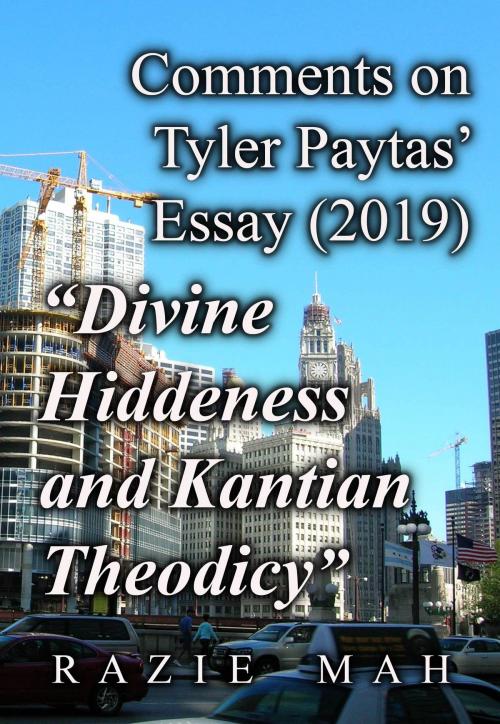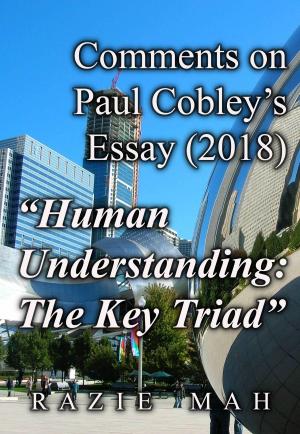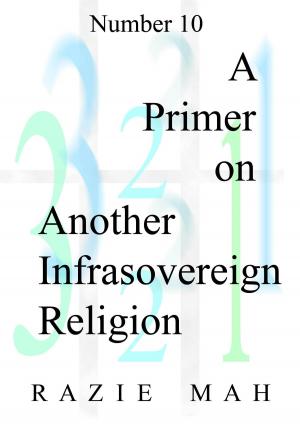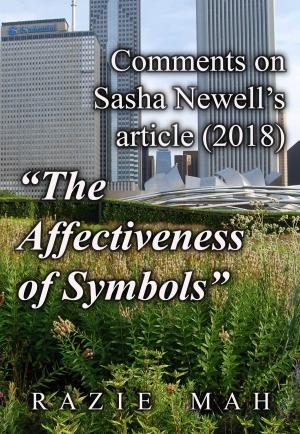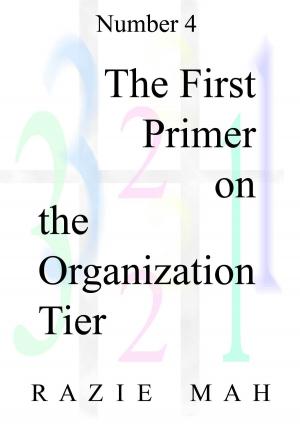Comments on Tyler Paytas' Essay (2019) "Divine Hiddenness as Kantian Theodicy"
Nonfiction, Religion & Spirituality, Philosophy, Good & Evil, Theology, Christianity| Author: | Razie Mah | ISBN: | 9781942824619 |
| Publisher: | Razie Mah | Publication: | March 3, 2019 |
| Imprint: | Smashwords Edition | Language: | English |
| Author: | Razie Mah |
| ISBN: | 9781942824619 |
| Publisher: | Razie Mah |
| Publication: | March 3, 2019 |
| Imprint: | Smashwords Edition |
| Language: | English |
Tyler Paytas publishes “Of Providence and Puppet Shows: Divine Hiddenness and Kantian Theology" in the journal, Faith and Philosophy, in 2019. The subtitle captures the essence of the work, which ties together two questions that typically come from the same person. If God is just and loving, why not make Himself evident to everyone? If God is just and loving, then why is there evil in the world?
Of course, that person does not believe in Christ. The questions serve as an excuse for disaffiliation. Surely, a hidden God who allows evil cannot be perfect in love and justice.
These questions have been in currency for over two centuries. Immanuel Kant (1724-1805) explicitly dismisses the theodicies of his time. Kant addresses divine hiddenness as an aside. Yet, there is something clever in that aside that also applies to the question of moral evil, injustice and natural ruin.
Tyler Paytas presents a clear and convincing analysis. This re-articulation synthesizes a complementary vision, extending the argument into political theology.
Tyler Paytas publishes “Of Providence and Puppet Shows: Divine Hiddenness and Kantian Theology" in the journal, Faith and Philosophy, in 2019. The subtitle captures the essence of the work, which ties together two questions that typically come from the same person. If God is just and loving, why not make Himself evident to everyone? If God is just and loving, then why is there evil in the world?
Of course, that person does not believe in Christ. The questions serve as an excuse for disaffiliation. Surely, a hidden God who allows evil cannot be perfect in love and justice.
These questions have been in currency for over two centuries. Immanuel Kant (1724-1805) explicitly dismisses the theodicies of his time. Kant addresses divine hiddenness as an aside. Yet, there is something clever in that aside that also applies to the question of moral evil, injustice and natural ruin.
Tyler Paytas presents a clear and convincing analysis. This re-articulation synthesizes a complementary vision, extending the argument into political theology.
